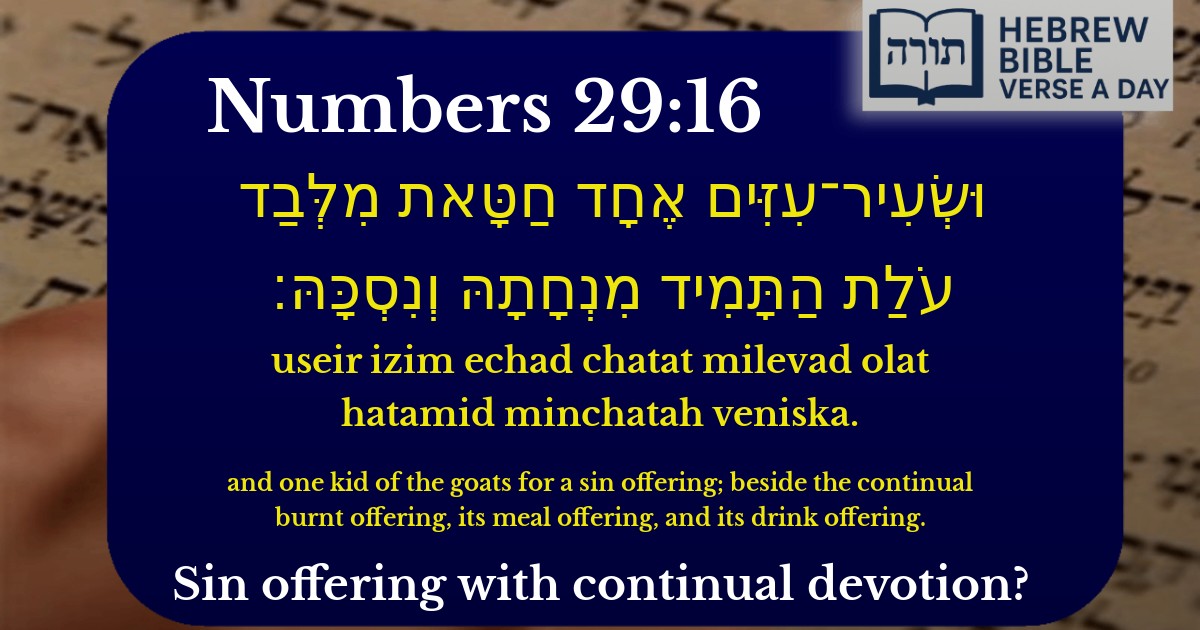Join Our Newsletter To Be Informed When New Videos Are Posted
Join the thousands of fellow Studends who rely on our videos to learn how to read the bible in Hebrew for free!
Hebrew Text
וּשְׂעִיר־עִזִּים אֶחָד חַטָּאת מִלְּבַד עֹלַת הַתָּמִיד מִנְחָתָהּ וְנִסְכָּהּ׃
English Translation
and one kid of the goats for a sin offering; beside the continual burnt offering, its meal offering, and its drink offering.
Transliteration
Useir izim echad chatat milevad olat hatamid minchatah veniska.
Hebrew Leining Text
וּשְׂעִיר־עִזִּ֥ים אֶחָ֖ד חַטָּ֑את מִלְּבַד֙ עֹלַ֣ת הַתָּמִ֔יד מִנְחָתָ֖הּ וְנִסְכָּֽהּ׃ {ס}
Parasha Commentary
📚 Talmud Citations
This verse is quoted in the Talmud.
📖 Menachot 45b
The verse is referenced in a discussion about the daily offerings and the additional sin offering brought on the new moon.
📖 Shevuot 9a
The verse is cited in a discussion about the types of offerings and their requirements, particularly focusing on the sin offering.


Explanation of the Verse
The verse (Numbers 28:15) discusses the additional offerings brought on Rosh Chodesh (the New Moon), specifying a goat as a sin offering alongside the daily Tamid offering. This reflects the importance of atonement and divine service even on days that are not full festivals.
Rashi's Commentary
Rashi (Rabbi Shlomo Yitzchaki) explains that the goat offering serves as an atonement for impurity that may have occurred in the Temple or with its sacred objects. He cites the Talmud (Shevuot 9a), which states that this goat is brought even on Shabbat and Yom Tov, emphasizing its essential role in maintaining the sanctity of the Mikdash.
Rambam's Perspective
In Hilchot Temidin uMusafin (1:3), the Rambam (Maimonides) categorizes this offering as part of the Musaf (additional) sacrifices of Rosh Chodesh. He emphasizes that it is distinct from the daily Tamid offering, highlighting the unique sanctity of the day.
Midrashic Insight
The Midrash (Bamidbar Rabbah 21:10) connects this verse to the idea that Rosh Chodesh is a time of renewal. Just as the moon renews itself, so too does the Jewish people seek spiritual renewal through repentance and offerings. The sin offering serves as a means of purification, allowing the nation to realign with Hashem's will.
Key Halachic Points